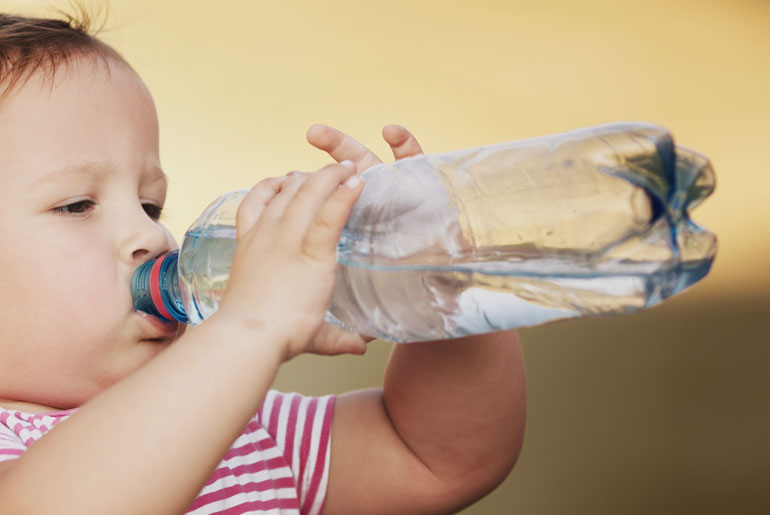Ensuring that your baby or toddler stays hydrated when they are unwell is crucial for their optimal health and well-being. Dehydration in babies can be a concerning issue, as they are more vulnerable to its effects. To prevent dehydration, offer frequent breastfeeds or formula feeds, encourage small sips of water for older babies, and use oral rehydration solutions for toddlers with vomiting or diarrhea. Additionally, offering popsicles or electrolyte-rich foods can help maintain hydration levels. Monitoring diaper output and seeking medical attention if necessary are also important steps to take. By closely monitoring hydration and providing appropriate fluids, parents can help ensure their little ones stay hydrated and healthy during illness.
Parents must remain vigilant and recognize the signs of dehydration in babies, such as decreased urination, dry mouth, and sunken eyes. It’s crucial to emphasize the importance of early intervention and regular monitoring of a baby’s hydration levels. If parents suspect their baby is dehydrated, they should seek medical attention promptly, as timely treatment can prevent long-term health issues. By staying attentive to these signs and taking swift action when necessary, parents can help ensure the well-being and hydration of their babies, safeguarding their health in the long run.
When a baby’s body lacks sufficient fluid, dehydration becomes a concern. While it’s natural for babies to lose fluid daily, it’s crucial to replenish what is lost, especially during illness. Due to their higher susceptibility, babies and young children require close monitoring of their fluid intake when they are unwell. Recognizing the typical causes and signs of dehydration is essential for early detection, ensuring that your baby remains well-hydrated. By remaining vigilant and promptly addressing any signs of dehydration, parents can help maintain their baby’s health and well-being, minimizing the risk of complications associated with inadequate hydration.
Cautioning against the serious complications that can arise from dehydration in babies, it’s crucial to note that electrolyte imbalances, heat-related illnesses, and even organ damage can occur. Since babies are unable to communicate their discomfort effectively, adults must be vigilant in recognizing early signs of dehydration. These signs include dry mouth, decreased urine output, and lethargy. By being attentive to these indicators, caregivers can take prompt action to ensure that babies receive the necessary fluids and prevent the potentially harmful consequences of dehydration.
Here’s a breakdown of some potential causes for each symptom:
- Sunken Fontanelle in Newborns: A sunken fontanelle can indicate dehydration in newborns. It’s essential to ensure the baby is adequately hydrated, as dehydration can lead to serious complications.
- Crying Without Tears: This can be a sign of dehydration in both infants and adults. Tears help keep the eyes lubricated, and a lack of tears could indicate dehydration.
- Excessive Irritability: While irritability can be caused by many factors, it can sometimes be a sign of discomfort or illness, especially in infants who cannot communicate their needs verbally.
- Cold or Discolored Extremities: This could indicate poor circulation or a problem with the vascular system. In infants, it might also be a sign of inadequate body temperature regulation.
- Wrinkled Skin: Wrinkled skin can be a normal sign of aging or dehydration. In infants, it can also occur due to prolonged exposure to amniotic fluid before birth or as a result of dehydration.
- Dry Mouth: Dry mouth can occur due to dehydration, certain medications, or medical conditions that affect saliva production.
- Reduced Bowel Movements or Constipation: This could indicate dehydration or gastrointestinal issues. In infants, it’s essential to monitor bowel movements for signs of normal digestion.
- Rapid Breathing: Rapid breathing can be caused by a variety of factors, including respiratory infections, dehydration, or other medical conditions affecting the respiratory system.
- Elevated Heart Rate: An elevated heart rate can be a sign of dehydration, fever, infection, or other medical conditions affecting the cardiovascular system.
It’s important to note that these symptoms can be indicative of various underlying conditions, and it’s essential to seek medical attention if you or someone you know is experiencing them. Dehydration, in particular, can lead to serious complications if not addressed promptly. If you’re concerned about any of these symptoms, it’s best to consult with a healthcare professional for proper evaluation and treatment.
Even if babies don’t feel like nursing or drinking fluids, it’s essential to continue providing them with breastmilk. If they are experiencing vomiting, caregivers should consider giving smaller, more frequent feeds to help keep them hydrated without causing further stomach upset. It’s important to avoid offering sodas or undiluted juice to babies of any age, as these beverages lack the appropriate balance of electrolytes and can exacerbate symptoms of their illness. By ensuring a consistent intake of breastmilk and offering appropriate feeding strategies, caregivers can help maintain hydration levels and support their baby’s recovery from illness.
If you observe symptoms of dehydration in your sick baby due to insufficient fluid intake, it’s crucial to contact their doctor promptly to discuss the symptoms and methods for quickly rehydrating them. Your child’s doctor may recommend an oral rehydration solution (ORS) to help them maintain hydration and replenish essential nutrients. In cases of severe dehydration, hospital treatment may be necessary to restore your baby’s fluids. It’s imperative to seek timely intervention to ensure the well-being of your child and prevent any complications associated with dehydration.
Disclaimer:
The information contained in this article is for educational and informational purposes only and is not intended as a health advice. We would ask you to consult a qualified professional or medical expert to gain additional knowledge before you choose to consume any product or perform any exercise.







